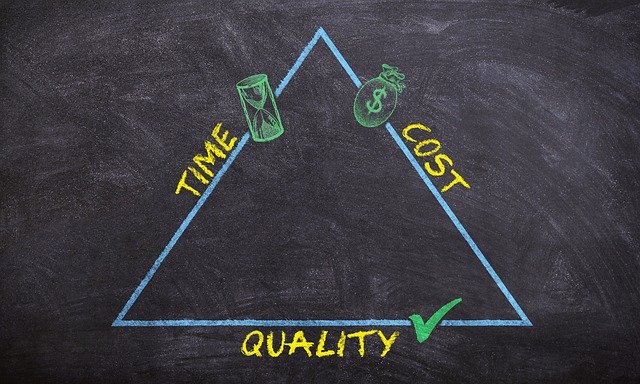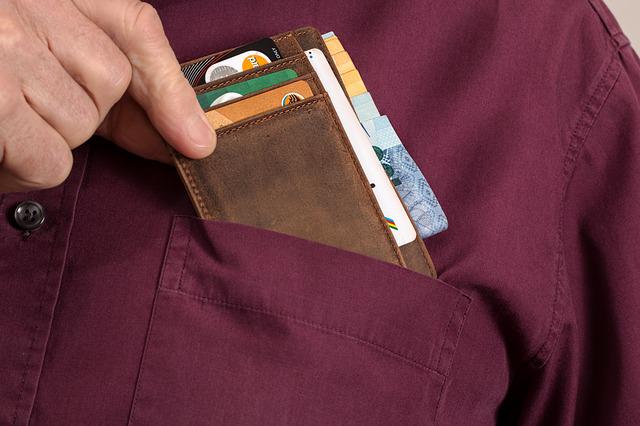

Budgeting is an invaluable tool to keep your finances in order. It can prevent you from getting into financial problems and help you gather a sizable amount of savings in your bank account. Still, you may not know how to budget properly for irregular expenses.
Do irregular expenditures include the cost of live in care or not? What can you do to stop them from eating at your monthly budget? These are only a few of the questions that may come to your mind. Fortunately, budgeting when your expenses fluctuate is easier than you might think.
First of all, you should identify your irregular expenses. These are the types of expenses that are infrequent and straightforward to predict. They range from vet bills and home repairs to certain types of subscriptions.
Next, you might want to figure out how much each irregular expense from your list costs, add the numbers, and, if it’s an annual cost, divide the sum by 12. This way, you will know how much (more or less) you need to set aside each month to cover your irregular bills. At the same time, you should consider the regular expenses, such as various subscriptions, gym memberships, or insurance .
If you would like to learn more, here is everything you need to know about irregular expenses and how to budget for them:
Keep an Eye on Your Income
If you want to be good at budgeting, you should know how much money you earn every month. It will give you a solid starting point for allocating your finances. On the other hand, it may also be harder to estimate how much money you have left for your irregular expenses if you do not know how much you really earn each month.
Some people are lucky and have a stable job, enabling them to plan their irregular expenditures accurately. If you are not in that position, a few tips could help you get an estimate of your income:
- Keep track of the checks you receive at work, or the cash you make by doing odd jobs (here you can check how much do Doordash drivers make)
- Keep an eye on any bonuses or extra commissions you get at work
- Track the amount of money your spouse or partner makes (if they have a steady job)
This way, you will know how much money you bring home every month and will be able to estimate how much you can actually spend on irregular expenses.
To calculate your monthly income, you should take into account all the sources of money you have, such as your salary, tips, side hustles, investments, etc. Once you have the total sum, divide it by 12 to determine your average monthly income.
Know Your Regular Expenses
Before you start planning for irregular expenses, you should make a list of your regular monthly expenses. This way, you will have an idea of how much money you can allocate to each category.
Your fixed expenses are the ones that don’t change much from month to month. They include the rent or mortgage payment, utilities, groceries, and other essentials. However, other regular expenses may vary more; they include home insurance, car insurance, and credit card payments.
The goal is to know how much you spend on these categories every month so that you can determine how much to set aside for irregular expenses.
Understand Your Irregular Expenses
Irregular expenses are those costs that don’t show up every month but that you can predict nonetheless. They include items like car repairs, doctor visits, vacations, and so on.
To make your budget work, you should figure out what types of irregular expenses you tend to have. In general, there are five main types of irregular expenses:
- home repairs and maintenance,
- medical and dental bills,
- auto repairs and maintenance,
- insurance premiums,
- subscriptions and memberships.
Still, it is crucial to underline that the list above is only a starting point. Most people have their own set of irregular expenses that differ from what we’ve mentioned here. As such, make sure that you include all of them in your budgeting process.
To calculate how much you spend on irregular bills monthly, simply look at your bank statements from the past few months and add up the numbers. If you don’t have bank statements that date back far enough, you can use an online calculator or ask a financial advisor for help.
Make a Budget
Once you know your income and expenses, it’s time to start budgeting. You can use a spreadsheet, an app or a budgeting program. The important thing is to make sure that you take everything into account and don’t forget about your irregular expenses.
Begin by allocating a certain amount of money for each expense category, such as housing, food, transportation, healthcare, etc. The categories should include everything from bills and groceries to entertainment and travel.
The second step is to define your income sources. These can include your salary, investment earnings, the money you get from renting out your property or other sources.
Finally, you should set up a plan on how much you need to save each month. Budgeting will help you achieve your financial goals and live a prosperous life.
Stick to Your Budget
The most critical part of budgeting is sticking to your budget. You need to be mindful of your spending and only use the money you have allocated for each expense category.
For example, if you plan to set aside £500 for groceries, try not to go over this limit. The best way to do this is to write down your expenses on a designated notebook or spreadsheet.
If you are struggling to stick to your budget, consider using cash instead of debit or credit cards. This way, you will be less likely to overspend.
Create a Separate Savings Account
Last but not least, you should create separate savings account for your irregular expenses. This way, you will have the money set aside for any unexpected spending that might pop up.
To do this, simply open a new savings account at your bank and transfer a fixed amount of money into it each month. For example, if you know that your irregular expenses add up to £100 per month, transfer £100 into your savings account each month.
Conclusion
If you want to feel more secure about the future and improve your financial health, taking care of your finances is crucial. Planning for irregular expenses is an integral part of that process. As such, you should consider paying more attention to your irregular spending habits and address them accordingly.
Although irregular expenses are sometimes unavoidable, you can minimise their effects on your budget. For example, you can set up a separate savings account for a rainy day and include your irregular spending in your monthly budget. Following this and other tips from this article will help you budget for your irregular spending and keep your finances in order.
Do so, and you will enjoy more financial freedom and always have the right amount of cash to make ends meet!





